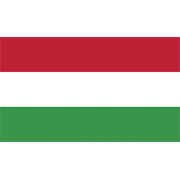Fiscal subject related
Additionally, the document specifies that QR codes are used to receive various types of data including the method of payment and discount codes, which facilitates a more efficient transaction process and improves customer service. The regulation mandates that QR codes facilitate the reception of customer invoice requests, which must include the customer’s email address for electronic invoicing. Encryption keys, obtained via QR codes or other means, are essential for securing communications between e-cash registers and the tax authority’s IT system, protecting sensitive data from unauthorized access.
To support these sophisticated functions, e-cash registers must adhere to stringent technical requirements ensuring their capability to manage encrypted data effectively. This ensures that every transaction is not only streamlined but also meets the rigorous data protection standards mandated by Hungarian regulations. The implementation of QR codes and strong encryption measures in e-cash registers represents a significant advancement in the digitalization of financial transactions, aligning with broader national goals to enhance digital security and efficiency. The document further highlights that QR codes must be scanned to validate the integrity of recorded data, ensuring compliance and accuracy in financial reporting.
Other news from Hungary
Mandatory Cash Acceptance Brought With Legal Changes Impacts Retail Businesses in Hungary
 Hungary
Author: Tara Nedeljković
Hungary
Author: Tara Nedeljković
Hungary has introduced a legal amendment effective July 1, 2025, requiring retailers to ensure customers can pay with cash, including through physical stores, cash on delivery, or account deposits, with exceptions for online subscriptions, cross-border e-sales, and fully automated stores. The National Trade Association (OKSZ) criticized the law, warning that it imposes unrealistic obligations on self-service stores, parcel lockers, and vending machines, potentially causing service disruptions and high conversion costs. Read more
Subscribe to get access to the latest news, documents, webinars and educations.
Already subscriber? Login


End of intra-model European electronic invoice and new rules introduced
Starting July 1, 2030, the EU will eliminate the Intra models for VAT reporting, replacing them with mandatory electronic invoicing under Directive 516/2025. The new system, part of the VIDA 2030 Package, will require businesses to issue standardized e-invoices for all intra-EU B2B transactions, with data transmitted to VIES for cross-border VAT monitoring and fraud prevention. This shift aims to... Read more



The customer application features and usage with the new e-cash registers in Hungary
 Hungary
Author: Tara Nedeljković
Hungary
Author: Tara Nedeljković
Hungary’s new e-cash register system includes a certified customer application that allows users to access, manage, and securely store their e-receipts through mobile or web platforms. The app offers mandatory features such as QR code scanning, receipt downloads, transaction history export, and receipt delivery preferences, while also supporting loyalty integrations and multilingual options. Read more
Subscribe to get access to the latest news, documents, webinars and educations.
Already subscriber? Login


Hungarian authorities are discussing the benefits of introducing e-cash registers and replacing online cash registers.
 Hungary
Author: Tara Nedeljković
Hungary
Author: Tara Nedeljković
Hungarian tax authorities are promoting the transition from online cash registers to new e-cash registers, highlighting cost savings, easier maintenance, and the elimination of mandatory receipt storage due to a built-in receipt archive. Businesses will have the option to use either hardware-based or cloud-based e-cash registers, with a free smartphone app version available for small businesses, while the use of online cash registers will remain permitted until 1 July 2028. Read more
Subscribe to get access to the latest news, documents, webinars and educations.
Already subscriber? Login


Hungary enacts the long-awaited official legislation on e-cash register requirements!
 Hungary
Author: Tara Nedeljković
Hungary
Author: Tara Nedeljković
Hungary has officially enacted the long-awaited 8/2025 (III. 31.) NGM Decree, also known as the EPG Decree, establishing the legal framework for electronic cash registers (e-cash registers) and e-receipts. Starting July 1, 2025, taxpayers may voluntarily adopt certified hardware-based e-cash registers, with mandatory transition for relevant sectors by July 1, 2028. The National Tax and Customs Adm... Read more



TLv6 Implementation Marks Significant Shift in EU’s Trust List Format
A new EU Trust List format, TLv6, will officially replace TLv5 in May 2025 as part of the updated eIDAS Regulation (EU 2024/1183). It introduces key technical changes like a new URI field, updated signature format, and optional phone number support. Organizations must update their systems to avoid signature validation failures and service disruptions, as TLv5 will no longer be valid once TLv6 take... Read more



VIDA regulation adopted—what does that mean for business?
The EU adopted the VAT in the Digital Age (ViDA) package on March 11, 2025, introducing major changes to the VAT system starting January 1, 2027. Key reforms include mandatory digital VAT reporting by 2030, new VAT collection rules for online platforms, and expanded One-Stop Shop (OSS) registration to simplify cross-border compliance. Additional measures, such as mandatory e-invoicing, phasing out... Read more


